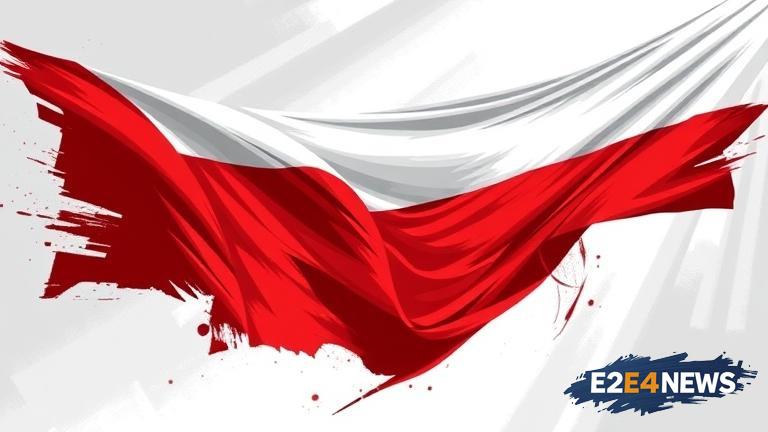The Polish President’s veto on a key EU legislation has sent shockwaves throughout the European Union, with many questioning the motivations behind this move. The veto, which was announced on Friday, has been met with widespread criticism from EU officials and politicians, who see it as a threat to the unity and cohesion of the bloc. However, the Polish government has defended the move, stating that it is necessary to protect the country’s national interests and sovereignty. The legislation in question, which aimed to increase the EU’s climate ambitions, has been a point of contention between Poland and the EU for some time. Poland, which is heavily reliant on coal, has been resistant to the EU’s efforts to reduce carbon emissions and transition to renewable energy sources. The veto has been seen as a victory for the Polish government, which has been seeking to assert its independence from the EU. However, it has also sparked concerns about the potential consequences for the EU’s climate goals and the bloc’s ability to act collectively. The EU has been trying to increase its climate ambitions, with a goal of becoming carbon neutral by 2050. However, Poland’s veto has put this goal in jeopardy, and has raised questions about the EU’s ability to achieve its climate objectives. The Polish government has argued that the legislation would have had a disproportionate impact on the country’s economy, and that it would have led to significant job losses in the coal industry. However, EU officials have disputed this claim, stating that the legislation would have actually created new job opportunities in the renewable energy sector. The veto has also sparked concerns about the potential impact on EU-Poland relations, with some seeing it as a sign of a growing rift between the two. The EU has been critical of Poland’s stance on a number of issues, including climate change, migration, and the rule of law. The veto has been seen as a further escalation of these tensions, and has raised questions about the future of EU-Poland relations. Despite the controversy surrounding the veto, the Polish government has remained defiant, stating that it will continue to prioritize the country’s national interests. The government has also argued that the veto is not a rejection of the EU’s climate goals, but rather a necessary measure to ensure that the country’s economy is protected. The veto has been met with widespread criticism from environmental groups, who see it as a major setback for the EU’s climate ambitions. However, the Polish government has argued that it is committed to reducing carbon emissions and transitioning to renewable energy sources, but that it needs to do so in a way that is sustainable and economically viable. The controversy surrounding the veto is likely to continue in the coming weeks and months, with the EU and Poland engaging in further negotiations and discussions. The outcome of these negotiations is uncertain, but one thing is clear: the veto has sparked a major controversy that will have significant implications for the EU and its member states. The Polish government’s decision to veto the legislation has been seen as a bold move, but one that is also fraught with risk. The EU has been clear that it will not compromise on its climate goals, and that it will take action to ensure that all member states are meeting their obligations. The veto has also sparked concerns about the potential impact on the EU’s internal market, with some seeing it as a threat to the free movement of goods and services. The EU has been working to create a level playing field for all member states, but the veto has raised questions about the ability of the bloc to achieve this goal. The controversy surrounding the veto is a complex one, with multiple factors at play. However, one thing is clear: the veto has sparked a major debate about the future of the EU and its member states. The EU has been facing a number of challenges in recent years, including the COVID-19 pandemic, migration, and climate change. The veto has added to these challenges, and has raised questions about the EU’s ability to act collectively and achieve its goals. The Polish government’s decision to veto the legislation has been seen as a sign of a growing rift between the EU and its member states. The EU has been working to create a more integrated and cohesive bloc, but the veto has raised questions about the ability of the EU to achieve this goal. The controversy surrounding the veto is likely to continue in the coming weeks and months, with the EU and Poland engaging in further negotiations and discussions. The outcome of these negotiations is uncertain, but one thing is clear: the veto has sparked a major controversy that will have significant implications for the EU and its member states.
